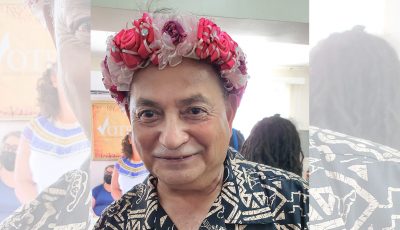Torres’ suit vs JGO is dismissed
Judge pro tem Timothy Bellas has dismissed the lawsuit filed by Gov. Ralph DLG Torres against the House of Representatives’ Judiciary and Governmental Operations Committee over its decision to hold him in contempt.
After over a month since hearing the arguments of both parties regarding the JGO’s motion to dismiss Torres’ lawsuit, Bellas issued his ruling on the matter yesterday, ruling in favor of the JGO by dismissing the suit with prejudice. That means the case cannot be refiled.
“The motion to dismiss is granted because there are no additional facts which could defeat the legislative immunity involved. The dismissal is granted with prejudice,” Bellas stated.

Bellas
According to Bellas’ order, one of the main reasons the court granted the JGO’s motion to dismiss was because it found that the committee can invoke legislative immunity because the court found that the subpoena issued falls within the “legitimate legislative sphere” protected by the Speech or Debate Clause.
“In determining whether a particular activity falls within the ‘legitimate legislative sphere,’ a court must determine whether the activity is an integral part of the deliberative and communicative processes by which [House lawmakers] participate in committee proceedings. In the case at hand, the committee believes that the governor’s testimony is necessary to enact remedial legislation that would curtail improper and wasteful spending of public funds,” he said.
Bellas stated that it is plain from the face of the complaint and the matters taken under judicial notice that the JGO was acting “within the sphere of legitimate legislative activity,” and the court need not inquire into the committee’s motives.

Torres
“The subpoena covers seven subject areas that all relate to the governor’s expenditure of public funds and use of government personnel and resources. Not only are these topics ones ‘on which legislation could be had,’ there is in fact pending legislation relating to more than one of these expenditures,” Bellas said.
As for Torres’ argument that legislative immunity under the Speech and Debate Clause is not applicable to the JGO as a whole, Bellas said because the clause’s central purpose is to provide legislative independence, the JGO may invoke the clause as a whole.
“The court reads the language of Article II, Section 12 of the NMI Constitution broadly to effectuate its purpose of protecting legislative independence. The court finds no compelling reason to limit the protections of the Speech or Debate Clause to individual legislators only, and therefore the House standing committee may invoke legislative immunity as an affirmative defense from suit,” he said.
The court also found that Torres, in his capacity as governor of the CNMI, is not immune to subpoenas issued by the legislative branch as he previously argued.
“The court will also address the governor’s argument that legislative immunity cannot trump the separation of powers doctrine, thus making him immune [to] being subpoenaed. It is true that the separation of powers doctrine safeguards the independence of each branch of the government and protects it from domination and interference by the others. Nevertheless, separation of powers does not mean that a sitting executive may never be called to task by the Legislature,” he said.



























